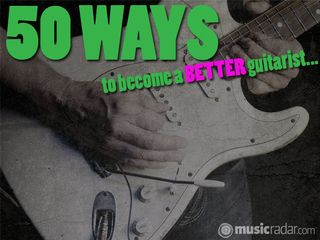
50 ways to become a better guitarist
2012 is just hours old, and there's no better time to make up for a festive period full of excess and over-indulgence by making a start on a new year voyage of self improvement.
We don't mean exercising more, eating less or quitting smoking - although you should probably think about doing those things too. What we're talking about is taking the kind of action that might just lead to a life of fame, fortune, excess and erm... over-indulgence, intervention and rehab. That's right - we're here with 50 nuggets of advice, all designed to hone your rusty six-string skills until your playing is sharper than a school of piranha on kitten-back.
So, without further ado, from the Guitar-obsessed brains of Guitarist magazine and a host of rock star contributors, here are 50 sure-fire ways to become a better guitarist... click onwards!

Play with other people
Music is all about communication and you’ll progress in leaps and bounds if you play with other people: supplying rhythm for someone else’s lead, playing ‘call and response’ with each other’s licks, even just learning when to stop playing.
Star tip
“A lot of people can play great in their bedroom, but you’ll make more progress playing with other people. You don’t develop a sense of rhythm playing solo.” Gary Moore
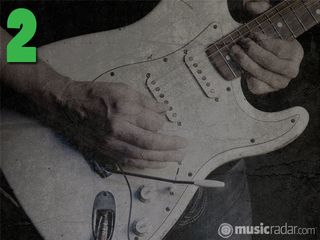
Learn songs note-for-note
Painstaking though it may be, learning a song note-for-note and from beginning to end not only increases your repertoire - it will also improve your focus, your timing, and your general appreciation of what a guitarist should (or shouldn’t) play when they aren’t in the spotlight.
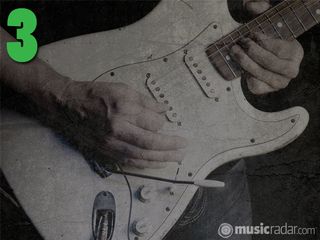
Schools of rock
Few musicians have the luxury of studying for years, full-time, to earn a degree or diploma in popular music. So alongside their degree programmes, academic institutions have developed a range of intensive, focused courses and masterclasses which can last a weekend or a week, or be undertaken part- time - check out these UK schools to begin with…
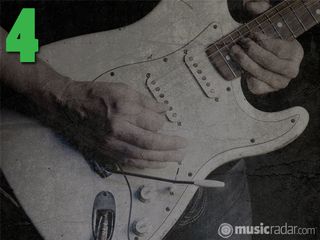
Take some lessons
They’re not just for beginners. Even if you’re a naturally talented player a good teacher can always point out what you could improve upon, or help you nail a style you thought you’d never master. Visit the Registry Of Guitar Tutors website to find a respected teacher in your area.
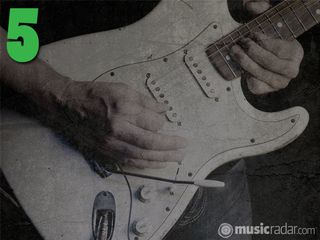
Go on guitar weekends
If you want to combine meeting like-minded souls with a bout of pro tuition, why not invest in a weekend course? Guitarist and Guitar Techniques tutors Neville Marten and Jason Sidwell teach on the Guitar Break courses, but there are lots more to choose from.
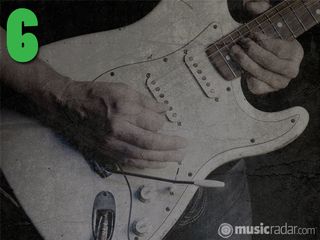
Buy the book
Are you a great lead player who never got round to playing fingerstyle? Or have years of shredding alone in your room stunted your musical growth?
Go back to basics with a Teach Yourself Guitar book: it’ll eradicate your bad habits, rebuild your foundations into something more solid and - if you know it all anyway - it’ll boost your ego no end. And once you’re finished, it’ll make a great present for the latest budding guitar player in your life.
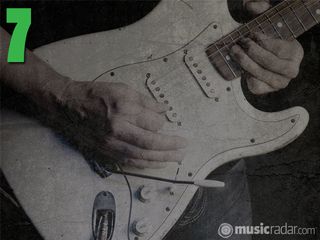
Think outside the box
Play licks you’re already comfortable with in a different position on the fretboard: you’ll expand your soloing vocabulary and improve your powers of fretboard visualisation.

OK computer!
Okay so these days, super-guitars are becoming less of a white elephant concept and your iPhone or iPad can be a great tool for music-making.
That said, your humble Mac or PC can still be a guitarist’s best friend. Take a look at the range of learning software that exists out there, from chord dictionaries to scale tools to interactive HD tuition.
MusicRadar On Demand isn't a bad place to start...
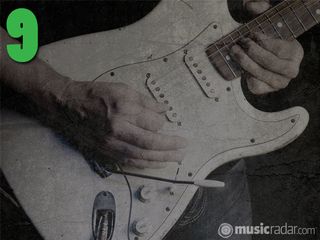
Practise without the guitar
There’s plenty to learn without a guitar in your hand. Identify the times in your daily routine when you could fit in half an hour of reading a musical theory book, watching a training DVD, memorising some new chord shapes or listening back to recordings of your own playing: on the bus, on the train, in the car… it all adds up.
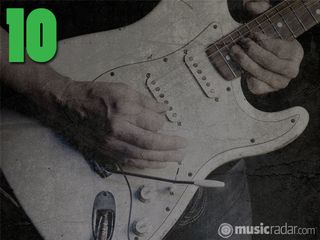
Tackle theory one step at a time
If scales are all Greek to you, or being CAGED makes you feel claustrophobic, then start small… but make sure you start.
Star tip
“The thing to start with is diatonic harmony – chords in the major scale – and soon after you’ll realise there are other things. Knowledge is good but it can temporarily screw you up if you don’t realise that you don’t know it all.” Paul Gilbert

Play with the best musicians you can find
Star tip
"There are times when somebody like BB King or Eric Clapton, when they play they look around at me and say, 'Come on, play!' And I say, Look man, you play, I’ll listen. I’m trying to learn something…" Buddy Guy
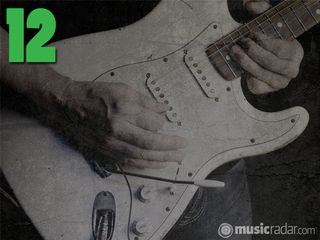
S-L-O-W down
Clarity beats scruffiness hands down (almost) every time. Take something you already know that’s at the limit of your technical ability, and play it slowly - alternatively, you could record it and slow it down with a phrase trainer if you have one. Do you really know it as faultlessly as you think you do?
Star tip
“I love the one good note. More and more, my approach to music has been to slow things down a bit and get the absolute most out of every single note I possibly can.” Ed Gerhard

Buy a new effects pedal
FX are a great way of refreshing your style and tone and it's cheaper than ever to get a road-worthy stompbox. Don't know where to start? Check out the 33 best modulation and filter pedals of all time, the 17 best delay and echo units and the 42 best overdrives, distortions and fuzzboxes.
Star tip
“Sometimes you can just put on an effect and come up with a whole song. The riff to When The World Was Young came about purely because I had the tremolo effect on my AC30.” Jimmy Page
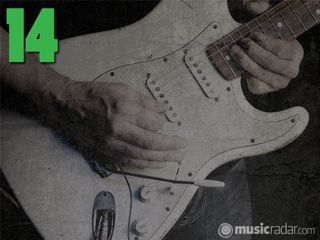
Sort out your practice room
The more pleasant an environment you practise in, the more time you’ll spend there.
Consider equipping the room with a decent stereo and DVD player (with a remote control or programmable facility to ease learning); make sure seating is comfortable, and keep clutter to a minimum. Also, buy a music stand so you can use tab in magazines more easily. One with handy clips or a music rest for keeping the pages open is ideal. For a colourful range, visit JHS.
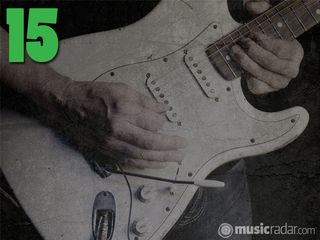
Look after your guitar
Have your instrument set up properly and restring it regularly, regardless of how much it’s worth. A badly intonated, rusty stringed guitar is as distressing a sight as a mangled kitten - and neither is something you’re going to want to pick up and cradle lovingly.
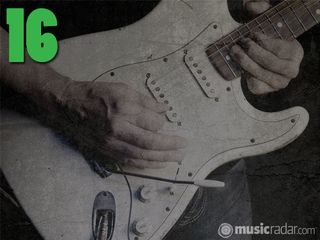
Buy a slide and a capo
There are few quicker, cheaper or more direct ways to rejuvenate your playing and experiment with your sound. If you don’t own either of them already, treat yourself today.
Star tip
“I started using a capo at the second fret because of Morrissey’s voice, and suddenly my Gretsch (main writing guitar) sounded better, and the tunes sounded punchier.” Johnny Marr
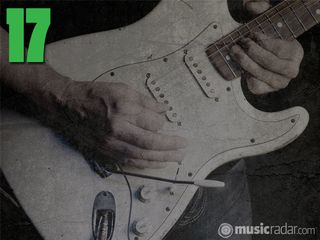
Buy a metronome
If you want to improve your timing for soloing or rhythm guitar tightness, a metronome is simply a must-have piece of equipment.
Star tip
“I still practice my pentatonics every single day using a metronome. Good guitar playing is all about phrasing and it’s important to keep that up.” Zakk Wylde

Buy a phrase trainer
A phrase trainer’s ability to slow down the guitar antics of your heroes while retaining their original pitch (and to use EQ to isolate guitar parts in a mix) is a godsend for the aspiring guitarist. Here's a good one.
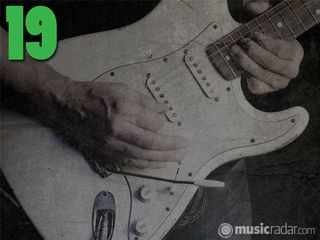
Learn to build a solo
Playing scales up and down isn’t enough to make a truly memorable solo. Experiment with time, allowing some notes to ring longer than others; repeat a sequence of notes to build a memorable lick; leave gaps in your solo so the rest of the music can keep breathing.
Think in terms of a story: the best solos (let’s not deny it: Led Zeppelin’s Stairway To Heaven) often have a definite beginning, middle and end.
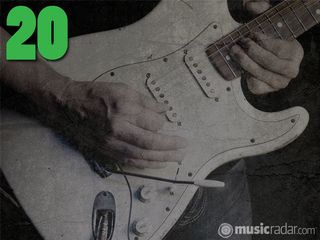
Identify the problems
Is your vibrato weedy? Are your hammer-ons noisy? Are your bends hitting the right notes? Have a friend listen and criticise your playing, fall out with your friend - then take their criticism onboard.
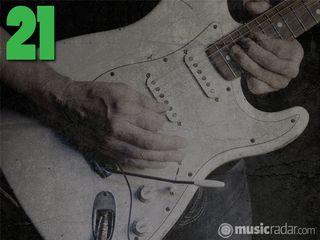
Phrasing
Guitarists used to playing on their own often pay scant attention to phrasing and tend to play almost continuously. Yet sophisticated phrasing is often the hallmark of an accomplished player (think Clapton, Knopfler et al). To develop yours, try playing off the beat, employ rhythmic repetition, and best of all - play with other people.
Star tip
“In many ways you should try to phrase like you’d speak. Imagine someone talking to you for 20 minutes with no pauses or spaces - it’d sound exhausting.” John Etheridge
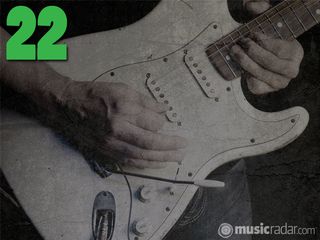
Play a different instrument
If you’re in a band, swap around at the end of a session. It’ll be a laugh, and you’ll gain a refreshing perspective on your own instrument. Many famous guitarists are multi-instrumentalists, or came to the instrument with a grounding in another (often drums). If you’re a songwriter, try swapping instruments to aid your creativity.
Star tip
“When I started to write on piano, I found that when I translated it back to the guitar it was better. Sometimes I still pick up the guitar for ideas, but I find that I end up finishing them on piano.” Pat Metheny
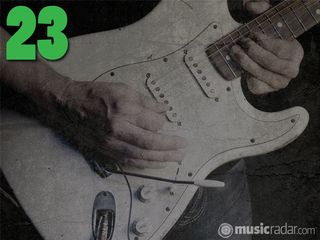
Techniques checklist
Have a look down the list and ask yourself whether you’ve mastered, or at least attempted, all of these:
- Sight-reading
- Alternate picking
- String skipping
- Sweep picking
- Muting
- Percussive slapping
- Thumb picking
- Fingerpicking
- Octaves
- Arpeggios
- Chords and scale relationships
- Behind the nut bends
- Throwing shapes

Play outside of your comfort zone
Never play on autopilot: you’re doing both you and your audience a disservice.
Star tip
“I saw a Guitar Craft student performing in a rough redneck bar in West Virginia. He was a Los Angeles attorney and it was so much performed in his sleep that I threw both my shoes at him consecutively.” Robert Fripp
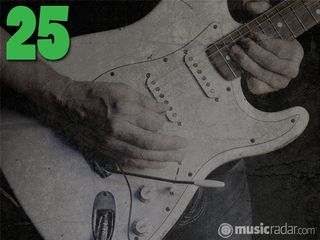
Make the most of rehearsal time
Do your hearing and your singer’s voice a favour: don’t prolong your band’s rehearsal time unnecessarily. Pick an optimum amount of time (say two hours) and make a pact to stay focused throughout.

Book a gig
If you’re in a band, give some venues a call and book some gigs. If you’re a solo musician, take the plunge and attend an open-mic night. There’s nothing like that date drawing ever closer to focus your mind on your music...
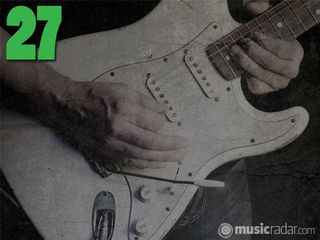
Use different pickups live
It seems so obvious - yet when you see bands play live, countless guitar players leave their pickup selector locked in one position all night. There’s (most likely) more than one pickup on your guitar for good reason so it’s well worth experimenting with different positions and combinations.
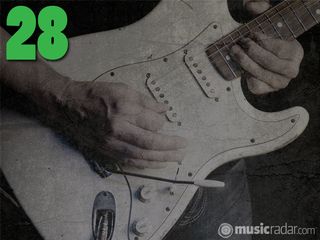
Have fun
Ask yourself why you picked up your guitar in the first place, and always try to play with the same freedom and enthusiasm.
Star tip
“Be prepared to make mistakes because that’s the way you learn; that’s how you find new riffs. Just jam with your friends, make mistakes, tread all over your own dick - it doesn’t matter. It is a job and it is an artform, but it’s also fun.” Steve Lukather
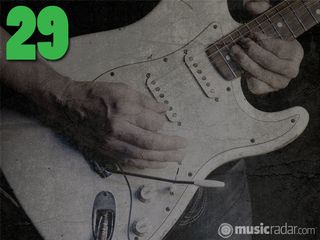
See a live band
It’s a no-brainer, but regularly seeing live bands and players will inspire your own playing and help support the live music industry too.
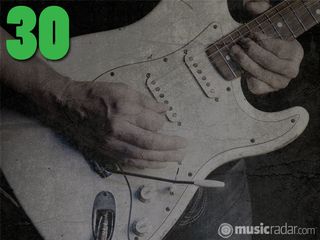
Throw away your plectrum
Think of classic rock players with great tones - Brian May, Jeff Beck, Billy Gibbons, Mark Knopfler - and you’ll often find a regular plastic plectrum is never involved. The sixpence and peso used by May and Gibbons aren't for everyone, so why not just use the flesh-on-wire approach of Beck and Knopfler? The subtlety and attack could revitalise your sound.
Star tip
“Jeff Beck doesn’t use a pick and sounds great, and Stevie Ray Vaughan didn’t use one much either - he just used to have it there. It’s a thing to fall back on, but a lot of the time you don’t need to use it at all.” Gary Moore
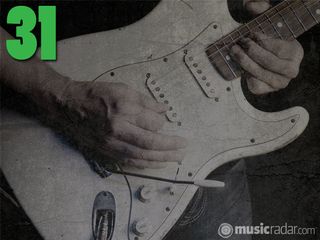
Embrace Zen Guitar
Playing guitar isn’t a competition, or a race - have a think about, and keep in mind, the principles behind why you play. See www.maui.net/ zen_gtr for inspiration from the late Phillip Toshio Sudo, and to join the thriving Zen Guitar community.
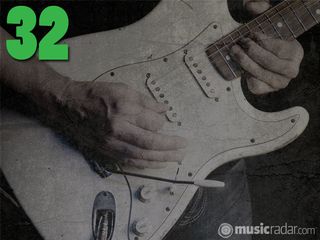
Get under the influence
Look out for interviews with your favourite players, and find out not only what gear they used, but who they were influenced by.
Star tip
“Listen to the past… the beauty of it is you can take one of those things and make it yours. With learning too much from the later players, you don’t have that much opportunity to make something original.” Eric Clapton
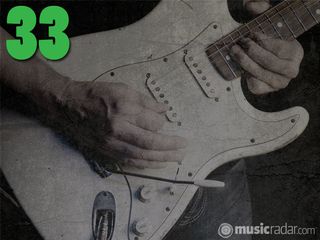
Fine tunings
You don’t have to be a folk or slide player to experiment with a different tuning. DADGAD, open major and minor tunings, and even drop-D can be the missing link to opening up your creativity.
Star tip
“The trick for me was to make DADGAD my standard tuning. I felt I could have a different approach, I was more connected to what was speaking to me and I felt good at it. The day I decided to use DADGAD, I felt completely relieved.” Pierre Bensusan
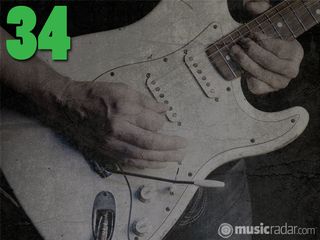
Use 'oblique strategies'
Devised by producer Brian Eno and Peter Schmidt, these suggestion cards aim to inspire novel ways of approaching writing and recording - hence such suggestions/commands as:
- Use ‘unqualified’ people
- Emphasise repetitions
- Listen to the quiet voice
- Do nothing for as long as possible
Eno occasionally brings his Oblique Strategies to U2 album sessions and it hasn’t done them any harm, has it?
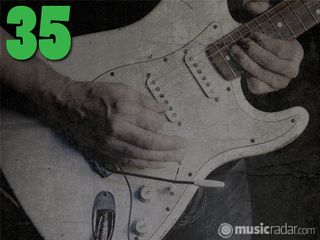
Realise it's never too late
Star tip
“I practise two hours a day, even Christmas Day… I have a thirst for knowledge at 47 years old, what a dickhead! What a time to wake up!” Francis Rossi
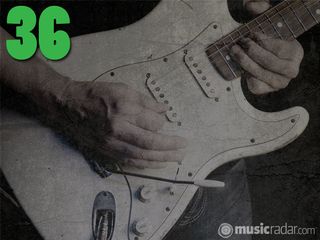
Stay fit and healthy
You’ll be around to play guitar longer!

Think before you play
If, like the majority of guitarists, your idea of a typical practice session is to pick up your axe and noodle away, make a conscious decision to stop it - right now. Structure your learning and practice. You’ll see the improvement straight away...

Do exercises
Athletes don’t get better without training regimes so why should guitarists? If the first thing you play when picking up the guitar is always roughly the same - a favourite chord progression or lick - you may be simply repeating what you already know. Are you really getting better?
Star tip
“When you’re doing loads of gigs, it’s a mistake to think you’re getting better. What really gets you better is when you stop and do something new.” Dan Hawkins
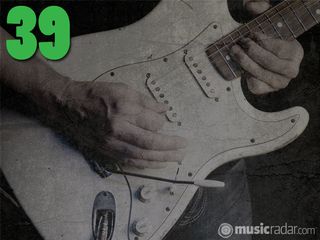
Learn a new chord shape every day
Get yourself a chord book, and take it one chord shape at a time. Try to use new ones, even if it just means embellishing a chord with one note.
Star tip
“Books are the best place to learn about chords. If your ear is not accustomed to knowing that there’s a 6th or a 9th chord or whatever, you’re not gonna hear it just from listening. I was buying tons of chord books only a little while back!” John Frusciante
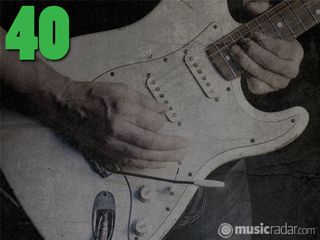
Gauge the situation
Choosing the right string gauge for you is vital. A lighter (.8-.38) set may add brightness to your sound but you may find that you over-bend, while a heavier set of strings can add some meat to your tone. Also, try flatwound strings if a 1950s rock 'n' roll vibe is your thang.
Experiment and consider what your favourite players used: e.g. SRV played with a .13-.58 set, while Brian May favours .8s.
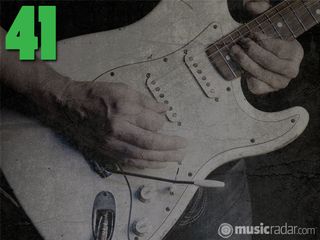
Start on a random note
Next time you’re playing along to a backing track, start on a random note in a solo and try to discover ways to incorporate it, and make it sound intentional.
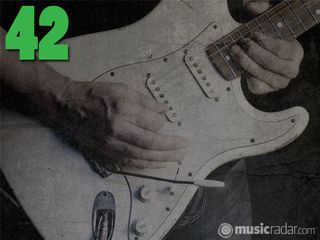
Simplify your soloing
If you’ve a tendency towards flashy lead playing, then impose some limitations. Try soloing using only one box position, or using just three notes; think about repetition and rhythm in your phrasing.
Star tip
“One of my favourite solos is in Cinnamon Girl by Neil Young. It’s a one-note solo and it just fits the song. You’ve got to decide – are you making music for people or are you doing it for yourself?” Eddie Van Halen
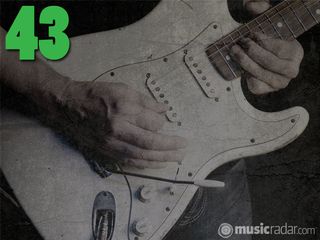
Close your eyes
To develop an unconscious understanding and ‘mental map’ of the fretboard - and to aid in live performance - practise some chord progressions and improvise some solos with your eyes closed. It’s harder than you might think, but you will reap rewards in the long run...

Vocalise as you play a solo
You may think it’s embarrassing, but singing the notes you’re playing significantly aids phrasing and improvisation, improves your appreciation of intervals and rhythm, and also makes you sound more like Jimi Hendrix - always a good thing.
Star tip
“I don’t like to play solos on records unless you can actually sing them. If you have a solo stuck in your head, then that’s the right solo for a hit song.” John Mayer

Slide effects
Mess with your trusty slide to create some unique ‘special effects’. In an open tuning, fret behind the slide to voice minor chords; hold the slide precisely over the 12th, seventh or fifth fret, then pick the strings behind the slide, towards the nut end, for a spooky harmonic shimmer. Make sure you shake from the shoulder for a ‘looser’ vibrato.
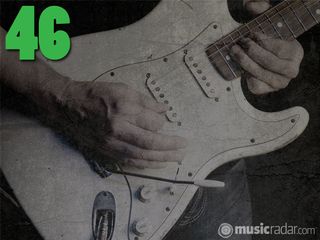
Listen to some blues music
It goes without saying that most contemporary pop and rock music owes its existence to the sound of the Mississippi Delta but aside from the usual suspects, dig a little deeper and check out the folk-blues style of artists like Mississippi John Hurt for a masterclass in melodic vocal accompaniment from all the way back in 1928.
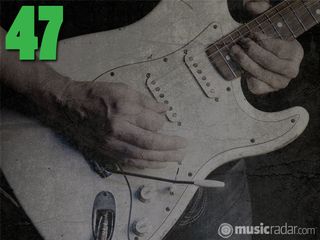
Break some rules
Just because you are the guitar player in a band, it doesn't mean that you have to conform to rock conventions. Tom Morello took a scratch DJ sound as the blueprint for much of his guitar work in Rage Against The Machine and went on to become one of the most original and unique guitarists of his generation. Find your own identity and don't be scared if that means taking a trip into the left field.

Get off that forum!
Okay, we're all guilty of this to some extent, but how much time do you spend every week conversing/arguing about guitar-related topics on forums such as ours? Now, imagine if you made a concerted effort to spend half of that time with a guitar in your hand, working through some of these tips instead... What kind of impact do you think that would have on your playing? You get the picture.
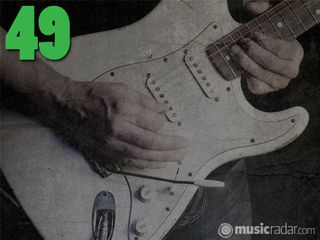
Gear is not a shortcut
Much as we love guitar gear (and here's MusicRadar's pick of the best of 2011) it's easy to get caught up in buying and selling guitars, amps and FX in the pursuit of some sort of holy grail guitar tone. However, the truth is that a great guitar player can usually make even the most rudimentary equipment work for them, and sometimes, an instrument's limitations can be used to your advantage. Ultimately it's practice that makes perfect, not purchase.

Subscribe to a guitar magazine!
MusicRadar's sister titles are the best guitar magazines in the business and every issue is packed full of essential advice so check out the great offers below...
Buy a Guitarist magazine subscription (from £11.59 per quarter)
Buy a Guitar Techniques magazine subscription (from £11.59 per quarter)
Buy a Total Guitar magazine subscription (from £10.79 per quarter)

Guitarist is the longest established UK guitar magazine, offering gear reviews, artist interviews, techniques lessons and loads more, in print, on tablet and on smartphones Digital: http://bit.ly/GuitaristiOS If you love guitars, you'll love Guitarist. Find us in print, on Newsstand for iPad, iPhone and other digital readers
Most Popular





